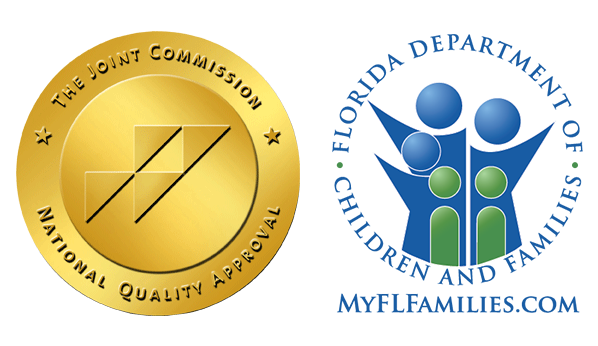In the US, purchasing and drinking alcohol is legal. Often deemed as relatively safe, millions of people each year consume alcohol. However, when abused, consuming alcohol can be extremely dangerous.
Not only can consuming large volumes of alcohol lead to addictions, but it can cause many individuals to experience extreme withdrawal symptoms. As a result, the effects of drinking alcohol can be disastrous.
Giving up alcohol if your body has become dependent on it can be physically and psychologically difficult. The thought of detoxing from alcohol if you have an alcohol use disorder (AUD) may fill you with dread as the withdrawal symptoms can be scary, uncomfortable, and dangerous.
However, giving up alcohol and overcoming your addiction is the best way to ensure a happy, healthy future. With appropriate guidance, treatment, and encouragement, alcohol withdrawal can be achieved safely, minimizing the risk of relapse.
What Is Alcohol Detox?
Defined as a period in which an individual abstains from alcohol and rids the body of toxic substances accompanying drinking, alcohol detox is the first stage in the recovery journey.
Though it is possible to detox at home, health care professionals often advise that alcohol detox is completed within a residential setting due to the severity of alcohol withdrawal. For example, immersive care and twenty-four-hour support are available when alcohol withdrawal detox is completed in a rehab center.
However, it is understandable that inpatient treatment is not for everyone. For this reason, it is vital to consider all detox options.
Though detox initiates the withdrawal process, inpatient rehab centers provide a wide range of treatments. Typically, medication, therapy, and counseling will accompany alcohol detox.
What Makes Alcohol Withdrawal Challenging?
Excessive drinking over a prolonged period can negatively affect the production of Gamma-aminobutyric acid (GABA). A chemical messenger, GABA, relaxes the brain.
Known as a depressant, when alcohol is consumed, the central nervous system is suppressed. As a result, withdrawal symptoms begin to appear when GABA levels reduce.
This makes withdrawing from alcohol somewhat challenging as withdrawal symptoms can be extremely unpleasant.
What Withdrawal Symptoms Are Encountered?
As each person has unique body chemistry, life history, and mental health, the withdrawal symptoms encountered will inevitably be different. The following factors essentially determine the severity of withdrawal symptoms experienced:
- The length of alcohol addiction
- The amount of alcohol consumed regularly
- Physical health
- Mental health
- Family history
Fortunately for some people, withdrawal symptoms are mild. For others, however, they can be so severe that they can result in death. This is why attempting to withdraw from alcohol without medical support is not recommended.
Below, we have outlined some of the most commonly experienced withdrawal symptoms:
- Nausea
- Shaking
- Agitation
- Insomnia
- Anxiety
- Tiredness
- Headaches
- Sweating
In the instance that severe withdrawal symptoms are encountered, the following may be experienced:
- Hallucinations – Hallucinations cause those withdrawing from alcohol to see things that are not there. Extremely frightening, hallucinations can also impact a person’s sense of sound, touch, smell, and taste.
- Seizures – These can be extremely dangerous and are a serious symptom of alcohol withdrawal.
In addition to the above, Delirium Tremens (DT) may be experienced when severe withdrawal symptoms emerge. DTs are the most serious withdrawal symptom somebody can experience during alcohol withdrawal.
Often surfacing a few days after alcohol was last consumed, DTs impact around five percent of people who are going through withdrawal.
Typically alleviating within two to three days, some of the symptoms of DTs include:
- Severe irritability
- Tremors
- Disorientation
- Persistent hallucinations
- Elevated heart rate
- Increases in breathing rate
- Pulse increase
- Blood pressure becoming high
What Is the Process of Alcohol Withdrawal?
Should you decide to complete withdrawal under the guidance of medical professionals, you will progress through a personalized treatment program. Here, you may be prescribed certain medications, such as benzodiazepines, if you are experiencing pain and discomfort from the withdrawal symptoms.
Although alcohol withdrawal is usually completed on an inpatient basis, upon contacting a rehab center, you will be advised whether inpatient or outpatient treatment will be most suitable for you.
Inpatient Treatment
Inpatient programs have a very high success rate. Providing around-the-clock medical care and support, those who complete an inpatient treatment program can remove themselves from any social or environmental triggers that could hinder their recovery.
Inpatient treatment is recommended if you:
- Have a history of serious withdrawal symptoms
- Have experienced seizures or delirium tremens
- Lack a support network
- Are pregnant
- Have been through detox previously
- Have a mental illness
- Have recently had high levels of alcohol use
Outpatient Treatment
Unlike inpatient treatment, outpatient treatment allows those in recovery to undergo alcohol withdrawal from the comfort of their own home. Administered under the guidance of a doctor, outpatient treatment is usually only suitable for those who do not fit in the above categories. Outpatient treatment is also more effective for those who have a mild to moderate addiction.
To Conclude
Withdrawing from alcohol can be an extremely daunting experience. However, completing detox and withdrawing from alcohol is one of the most rewarding experiences.
Though you may worry that you will be unable to complete detox, the good news is that many people before you have successfully managed to. Furthermore, committing to the detox process will enable you to live a happier, healthier future.











